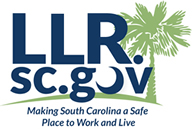The SCR Legislative Committee identified the following issues as top priorities for the 2018 session:
Homeowners Association Legislation (H.3886)
Issues and disputes regarding HOAs are an ongoing issue for REALTOR® membership and the real estate industry as a whole. H.3886, the SC Homeowners Association Act, is an important first step in providing uniformity, transparency, and relief for homeowners across the state. The bill would implement consistent guidelines that encourage good governance among HOAs and protect homeowners’ interests. The legislation provides the following protections:
• Requirement to record governing documents of the HOA. This provision clarifies that governing documents must be recorded with the Register of Deeds or Clerk of Court to be enforceable.
• Ability to resolve financial disputes between homeowners and HOAs in Magistrate Court
• Creation of a Homeowners Association Ombudsman within the Department of Consumer Affairs
• Requirement of 48-hour notice to homeowners prior to increasing the HOA annual budget
• Notice on the property disclosure statement by adding a check box to the current form that would notify a potential buyer if the property is subject to an HOA
*Bill Status: Passed the House (91-0); Senate Judiciary Committee Report: Favorable; Currently resides on the Senate calendar.
Prohibition of Eminent Domain for Petroleum Pipeline Companies (S.1101/H.5109)
In the 2016 session, SCR championed legislation that would prohibit private, unregulated petroleum pipeline companies from exercising eminent domain powers. The legislation that passed the General Assembly clarified existing South Carolina law and provided for a three-year moratorium, halting petroleum pipelines from using eminent domain to take the land and homes of South Carolina citizens.
SCR stands firm on the position that private property rights are essential and eminent domain should only be exercised by government entities for public use, as stated in the SC Constitution, and even then in limited circumstances.
The current moratorium sunsets on June 30, 2019-meaning there must be new or continuing legislation passed immediately to keep this ban intact.
SCR supports lawmakers in their efforts to draft legislation ensuring private property rights are protected.
Beachfront Management Reform Act (H.4683/ S.927)
The Department of Health and Environmental Control (DHEC) is required by law to establish and review the position of the two lines of beachfront jurisdiction (the baseline and the setback line) once every seven to ten years. The purpose of the jurisdictional lines is to implement laws and regulations that support the state’s beachfront management goals.
DHEC released proposed changes to beachfront jurisdictional lines in October 2017. The changes would dramatically and in many cases, negatively impact coastal properties.
The lack of adequate data, compressed timeline, and permanent position of the baseline set at a future date put South Carolina’s coastal property owners at a huge disadvantage.
Senator Chip Campsen and Representative Lee Hewitt filed legislation in their respective bodies that address beachfront jurisdictional lines.
Both bills provide a revised definition of a primary oceanfront dune, strike language that would set a permanent baseline, create a transparent process for the Department of Health and Environmental Control (DHEC) to follow in each new establishment cycle of proposed line changes, reinstate and establish parameters for DHEC review and appeals, and set a December 31, 2023 date for the redrawing of lines.
The bills also determine the time period in which topographical data can be collected after a storm system or event that causes extraordinary damage or erosion to an oceanfront area.
Until new baselines and setback lines are established, the lines deemed in effect for landowners are the more seaward lines of the following: (1) the baselines and setback lines in effect on December 01, 2017, or (2) the baselines and setback lines proposed by DHEC on or about October 06, 2017.
SCR supports lawmakers in their efforts to protect property rights and provide property owners and businesses adequate time and data to analyze potential repercussions from movement of the jurisdictional lines.
*Bill Status: S.927 was carried over in the Senate Environmental Subcommittee on 01.31.18
*BIll Status: H.4683 passed the House unanimously (98-0) and is scheduled for a subcommittee hearing in the Senate Environmental Subcommittee on 03.14.18.



